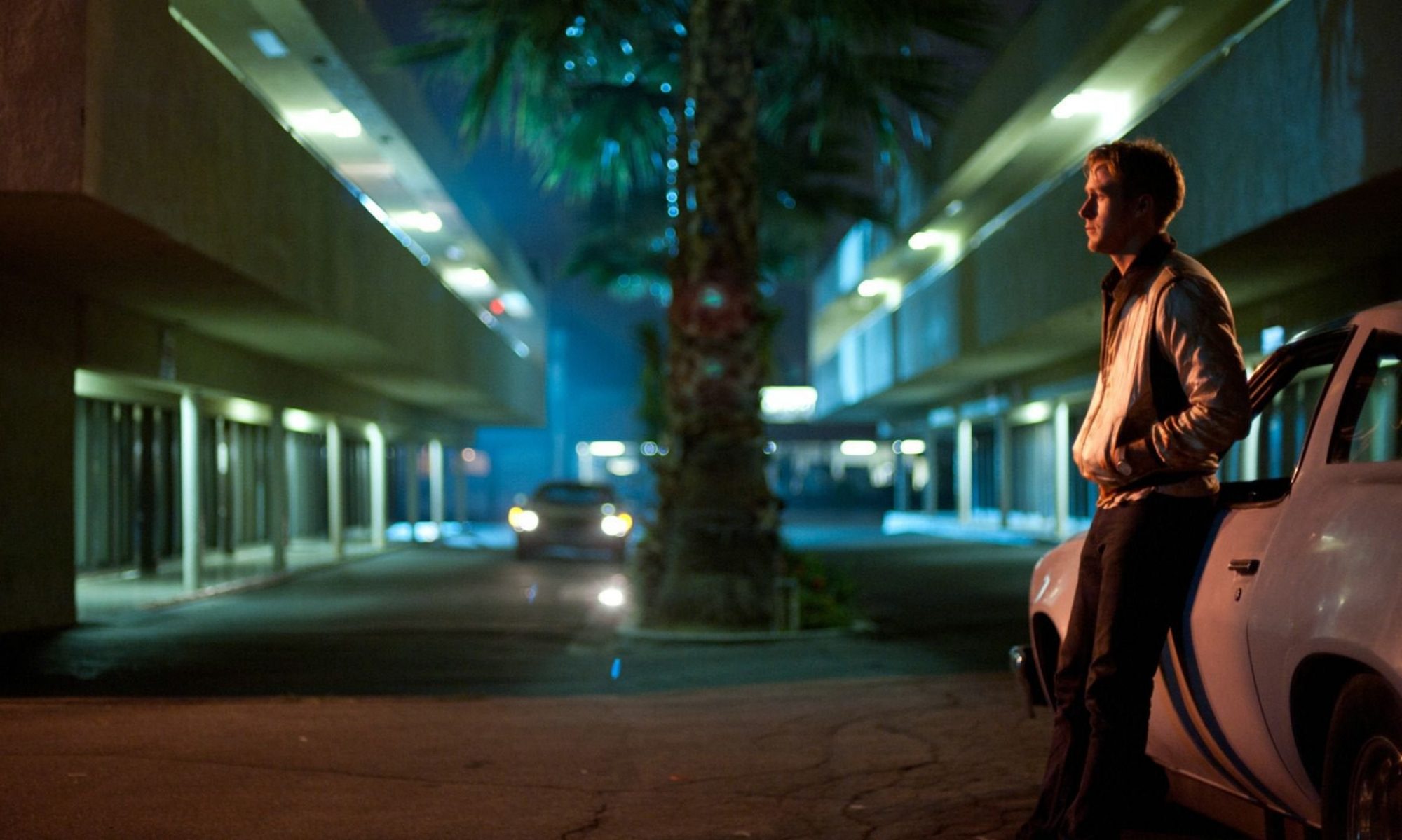The loner is a staple of the Michael Mann vehicle, whether it’s Neil McCauley evading cops, Frank trying to avoid slipping back into a life of crime or Hawkeye taking out bad guys. The director’s leading men are driven by a solitary urge, even when a woman comes along to threaten their sacred individuality. Speaking of driving, one of Ferrari’s main promotional posters, which features Adam Driver’s single-minded businessman, bears a striking resemblance to the central poster of Nicolas Winding Refn’s cult classic Drive. Not that Drive holds the mantle for having the first poster of a guy standing in front of a car in a film poster, but it’s an interesting link between the silent hero concept, even though that’s a pretty difficult idea to get your head around in this particular joint.
Mann based Ferrari on Brock Yates’ biography, whose subtitle, ‘The Man and the Machine’, seems somewhat ironic considering that Brock focuses almost entirely on the races and only allows fleeting glances of introspection concerning Ferrari’s personal life. As a result, the book comes across as emotionally stifled, but would no doubt appeal to any motorhead interested in the specifics of racing and its dangers (bystanders were frequently injured and killed by incoming vehicles that sped out of control). It’s a relief, then, that Mann puts his primary focus on the 1957 Mille Miglia with Ferrari in his later years rather than trying to go through his entire career from a substandard driver to a skilled businessman. This allows more space for human drama, but it’s intriguing to note how much the filmmakers have to diverge from the biographical prose to flesh out Ferrari. An early expositional scene where a grieving Ferrari talks to his deceased son in his mausoleum seems entirely out of character from the individual I saw in the biography, who came across as cold at best and a selfish asshole at worst. Then again, one biography isn’t enough to tell the tale of one man, and a bit of Hollywood schmaltz is usually required to add some emotional texture to a potentially stilted narrative.
Anyone familiar with Driver’s House of Gucci performance won’t be too surprised to learn that the accents aren’t much better here, but Driver does his utmost to bring life into a man that could come across as decidedly opaque. Penelope Cruz steals the show, however, as Ferrari’s aggrieved wife Laura, emoting worlds with still, anguished facial expressions. She deserves more screen time, but does an admirable job with what she’s got. The racing scenes themselves are stylishly choreographed but do little service to the overall narrative. Some of the awful CGI crashes seen at the end of the film’s otherwise admirable main trailer are still present and completely rip the drama out of any realist atmosphere. It’s also difficult to feel to any sympathy for the drivers in the vehicles, who are underdeveloped and lack the charisma of the main leads.
The denouement is shockingly brief; while it’s difficult to get a dramatic crescendo for a chunky biography, it’s nonetheless disappointing to see the film end on such an unresolved, awkward note. Hopefully Mann ups his game with his planned sequel to Heat in the next couple of years.
If you fancy checking out a couple of other biographies I’ve read in 2023 to see how they match up to the films that took inspiration from them, just click below:
